Understanding Countertop Thickness: Why 3cm is the Granite Standard and Quartz Has Options
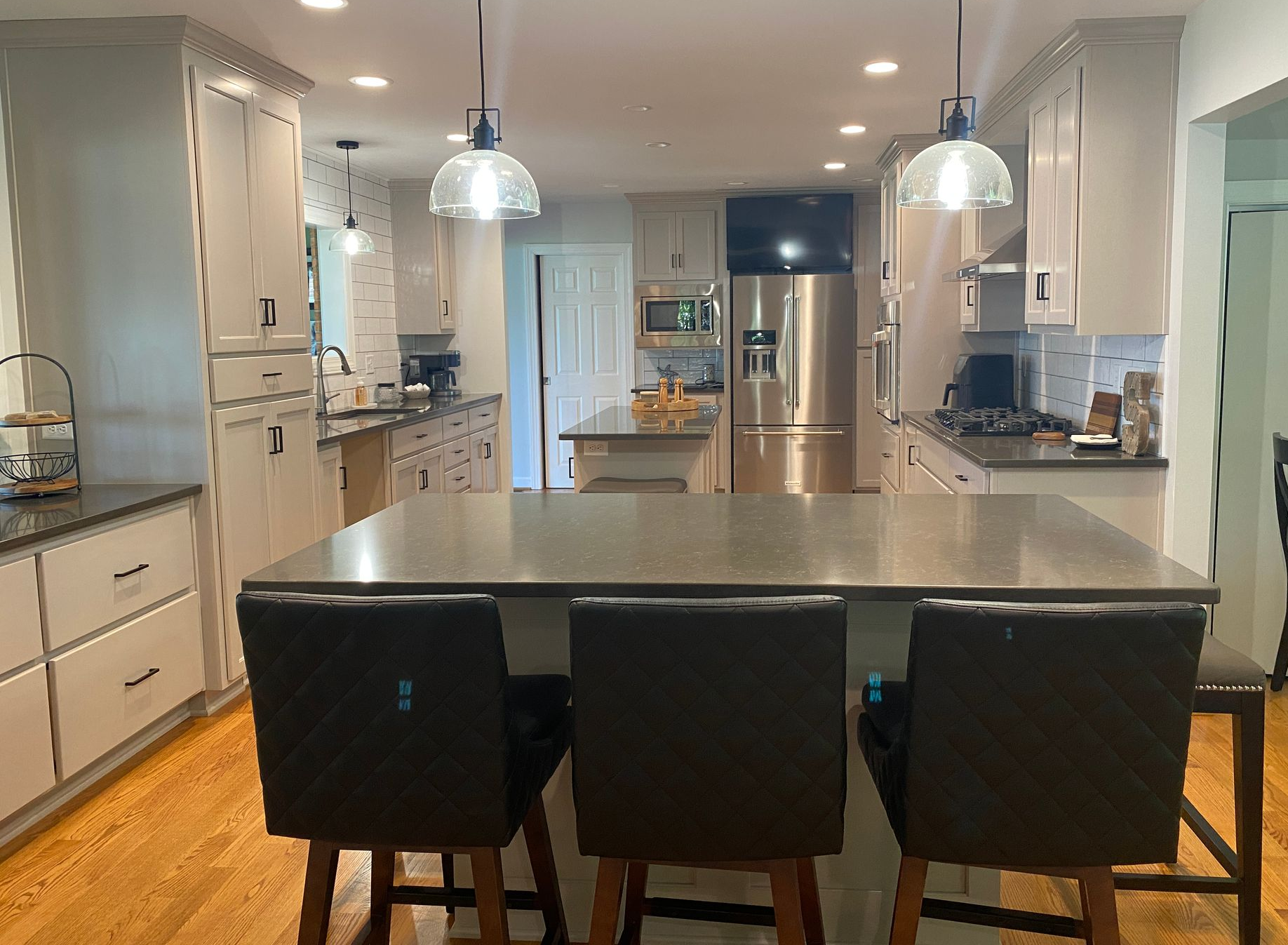
When planning a kitchen or bathroom renovation, one detail that often flies under the radar is countertop thickness—but it plays a big role in the final look, feel, and functionality of your space. For granite and quartz, two of the most popular materials on the market, thickness isn't just about aesthetics—it's about strength, durability, support requirements, and installation.
Let’s break it down.
The Granite Gold Standard: 3 cm
Granite countertops are almost universally installed at a 3 cm thickness (about 1 1/4 inches). Why? It’s simple—3 cm granite is strong enough to be installed without an underlayment in most cases. Granite is a natural stone and, while incredibly durable, it can be brittle when too thin. At 3 cm, it strikes the perfect balance between strength and elegance.
Pros of 3 cm Granite:
- No plywood support needed under most areas.
- Sturdier and more resistant to cracking or breaking.
- Substantial, high-end appearance.
Things to keep in mind:
- Supports are typically required for longer overhangs (like breakfast bars or islands) to ensure stability and prevent flexing or cracking.
- Heavier weight may slightly increase installation effort.
Quartz: 2 cm or 3 cm—What’s the Difference?
Unlike granite, quartz countertops are engineered, meaning they’re made from a mix of natural quartz and resin. This allows for multiple thickness options—the most common being:
- 3 cm quartz (1 1/4 inches)
- 2 cm quartz (3/4 inch)
Why the Variety?
Because quartz is manufactured, it can be made thinner than granite without sacrificing too much integrity. 2 cm quartz offers more flexibility for certain designs and budgets, while 3 cm remains ideal for heavy-use areas.
2 cm vs. 3 cm Quartz: A Detailed Look at Pros and Cons
3 cm Quartz
Pros:
- Durability & Strength: Thicker material offers more resistance to chips, cracks, and flexing—ideal for high-use areas like kitchens and laundry rooms.
- No Plywood Underlayment Needed: Can be installed directly on cabinets, simplifying the installation process and potentially saving on labor and materials.
- Luxury Aesthetic: The thicker edge creates a more substantial, premium look that aligns well with high-end or traditional design styles.
- Better for Decorative Edge Profiles: With more material to work with, fabricators have greater flexibility for creating detailed edge treatments like ogee or bullnose.
Cons:
- Heavier Weight: More challenging to maneuver and install, particularly in second-story installations or tight spaces.
- Higher Material Cost: Uses more quartz, which can raise the overall price per square foot, although the increase is often moderate.
- Added Weight on Cabinetry: In some cases—particularly with older or less sturdy cabinets—additional support may be recommended to handle the weight safely.
2 cm Quartz
Pros:
- Lighter and Easier to Handle: Makes it a great choice for installations on upper floors or where maneuverability is limited.
- Cost-Effective: Less material means a lower price per square foot, and potentially reduced labor costs for vertical applications.
- Ideal for Vertical Surfaces: Perfect for full-height backsplashes, wall cladding, fireplace surrounds, and shower installations where a lighter slab is easier to mount.
- Modern Aesthetic: The thinner profile creates a clean, contemporary look, especially when paired with simple edge styles.
Cons:
- More Fragile if Unsupported: More susceptible to breakage, especially near cutouts or unsupported spans, if not properly reinforced.
- Edge Limitations: Fewer options for thicker or more decorative edges without extra fabrication.
- May Require Laminate Edges: To mimic the look of 3 cm, a laminated front edge (where two strips are glued together) is often used. This adds time, cost, and introduces a visible seam.
Installation Tip: Don’t Skip the Dishwasher Brackets
We always recommend adding dishwasher brackets, even though they’re an optional upgrade. These brackets help anchor the countertop securely over the dishwasher, especially important when opening and closing the appliance regularly. They offer extra peace of mind and long-term stability—a small investment that protects your countertop and cabinetry over time.
When to Choose Each Thickness
- Choose 3 cm for: Kitchen countertops, islands, bathrooms, and laundry rooms—any space where strength and durability matter most.
- Choose 2 cm for: Backsplashes, vertical applications, or furniture-style pieces where weight and thickness aren’t as critical.
And remember, any countertop with a significant overhang—regardless of thickness—should have proper support brackets for safety and longevity.
The Bottom Line
Countertop thickness isn't just a design choice—it's a structural one. Whether you’re working with natural granite or engineered quartz, choosing the right thickness means your counters will not only look amazing, but stand up to everyday life.
Need help deciding what's best for your space? Let us know—we’re happy to walk you through it!
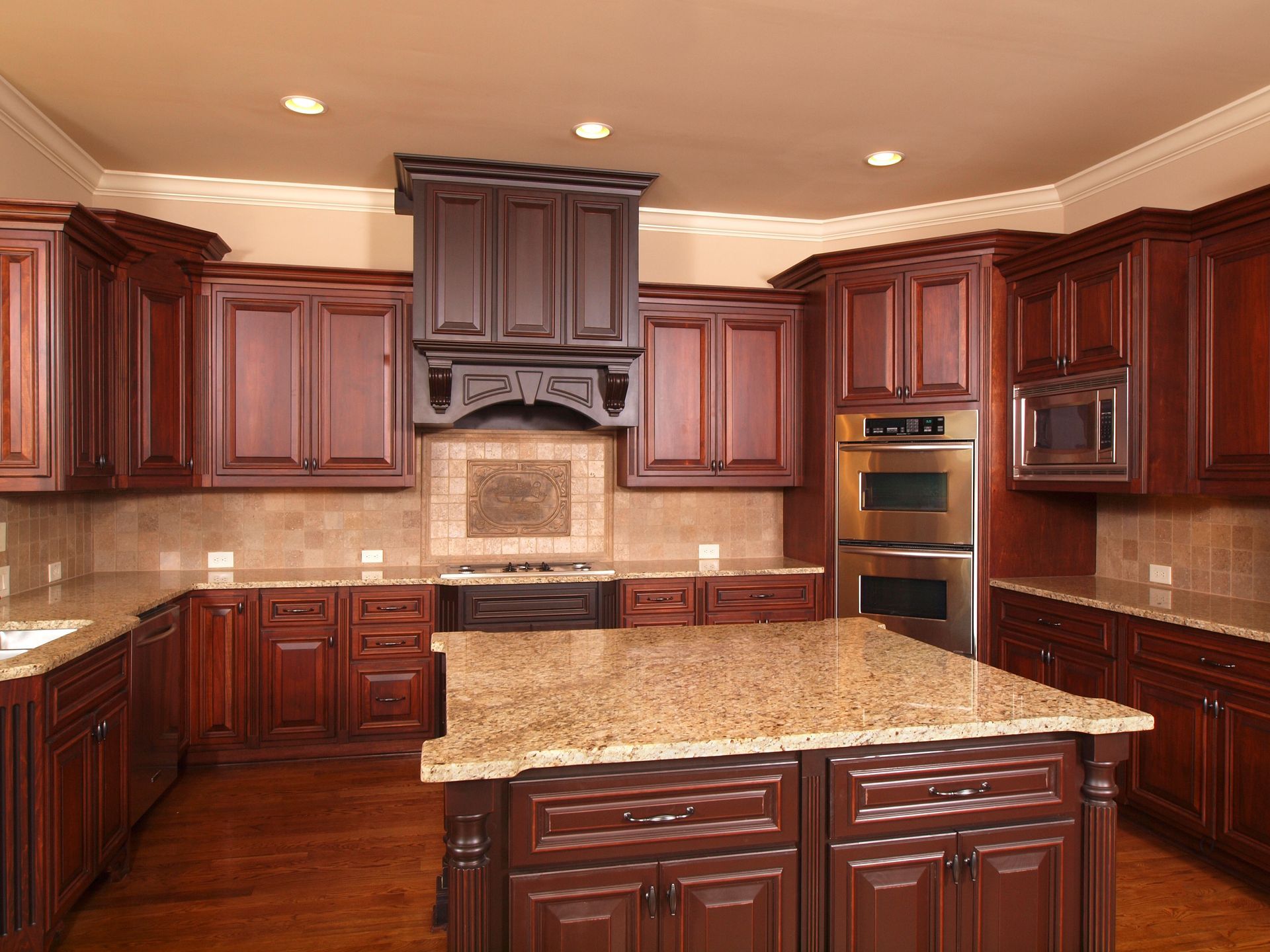
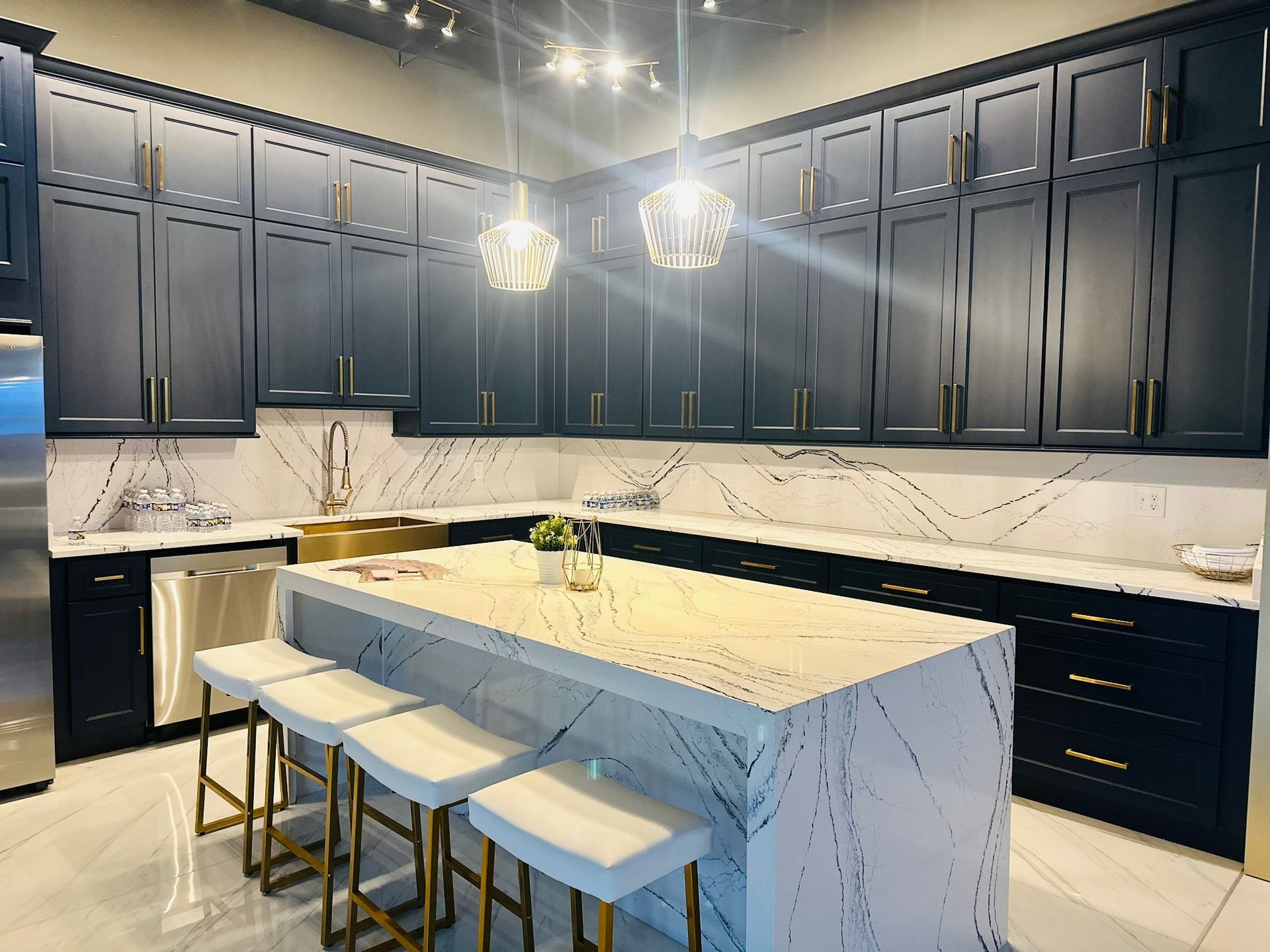
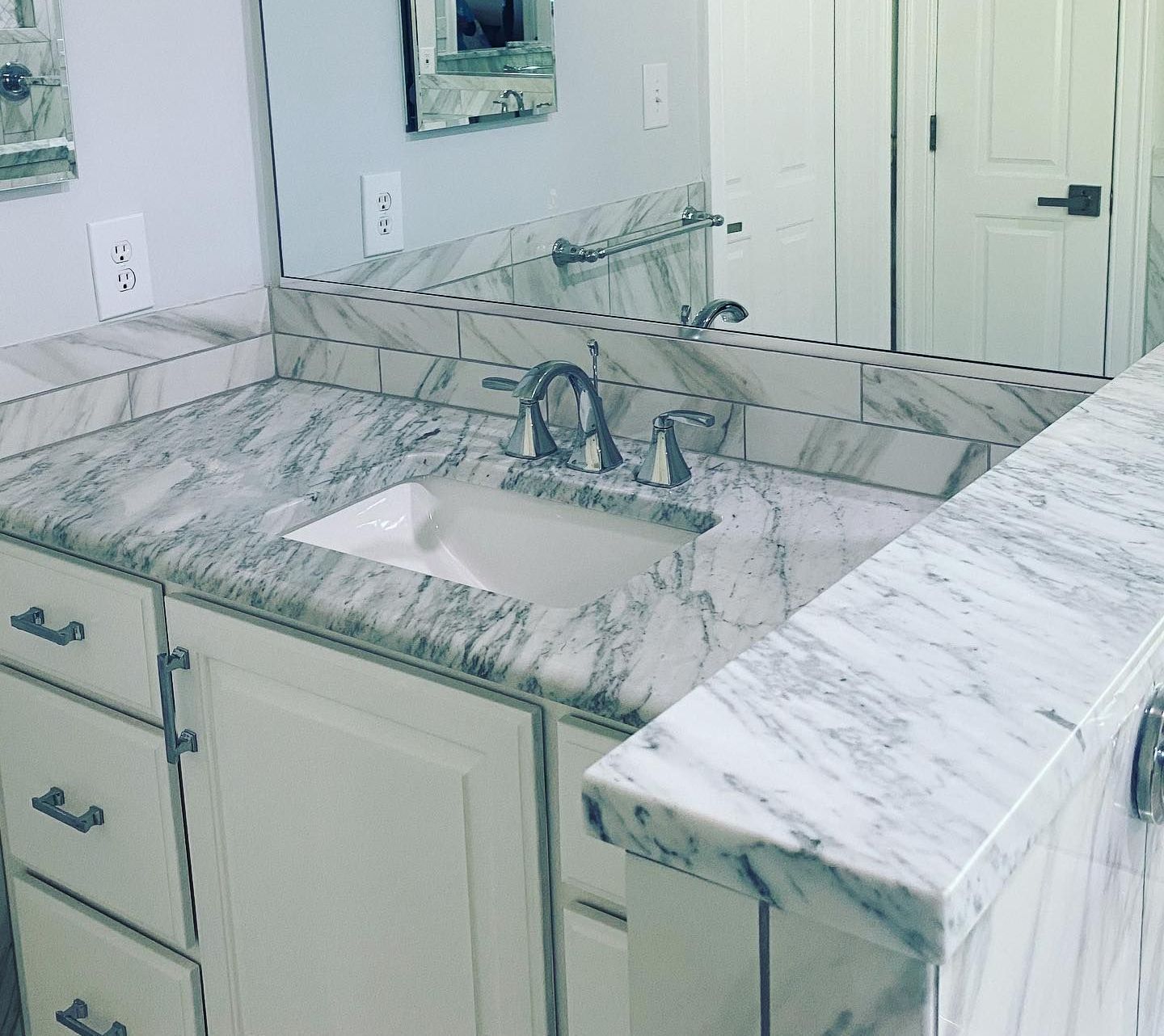

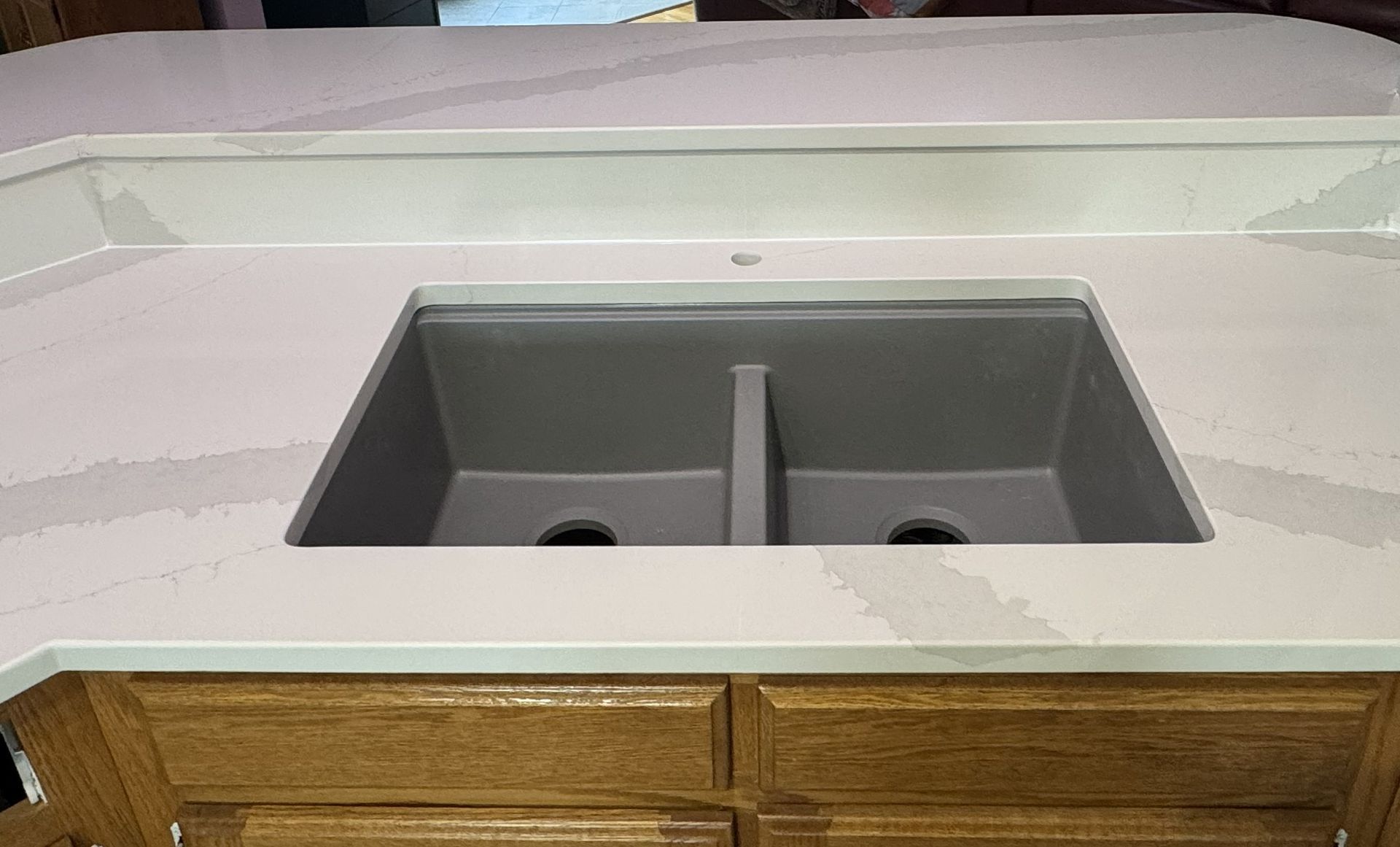

Share On: